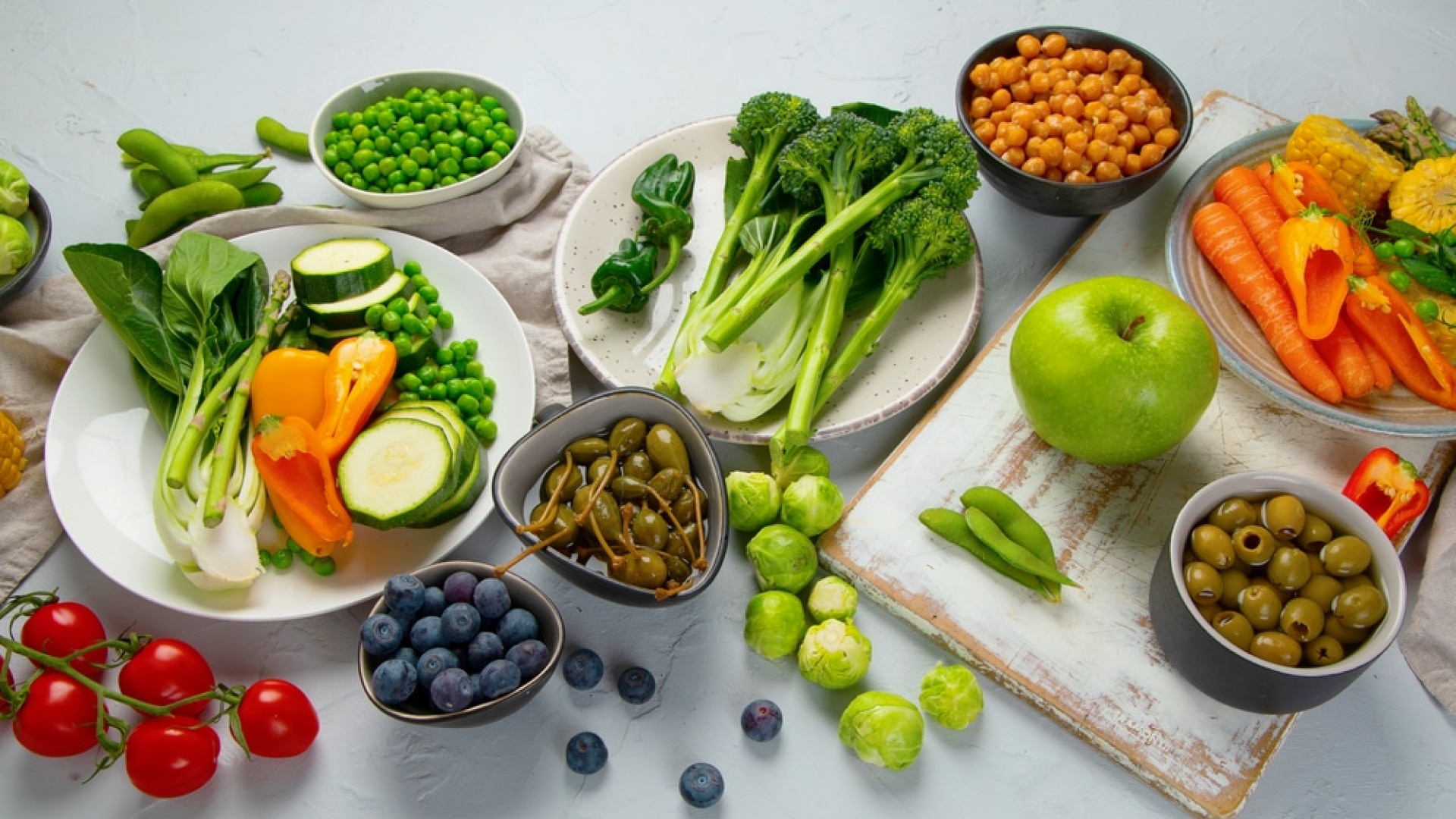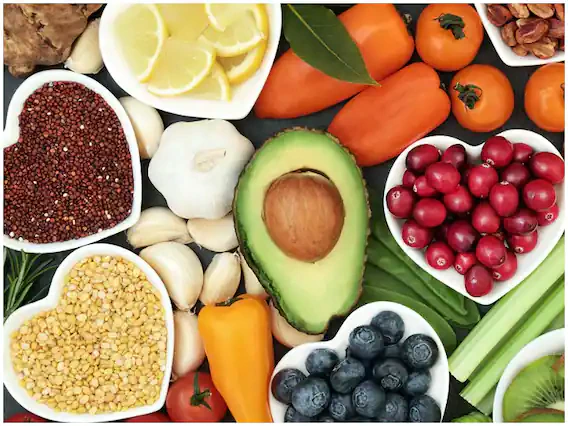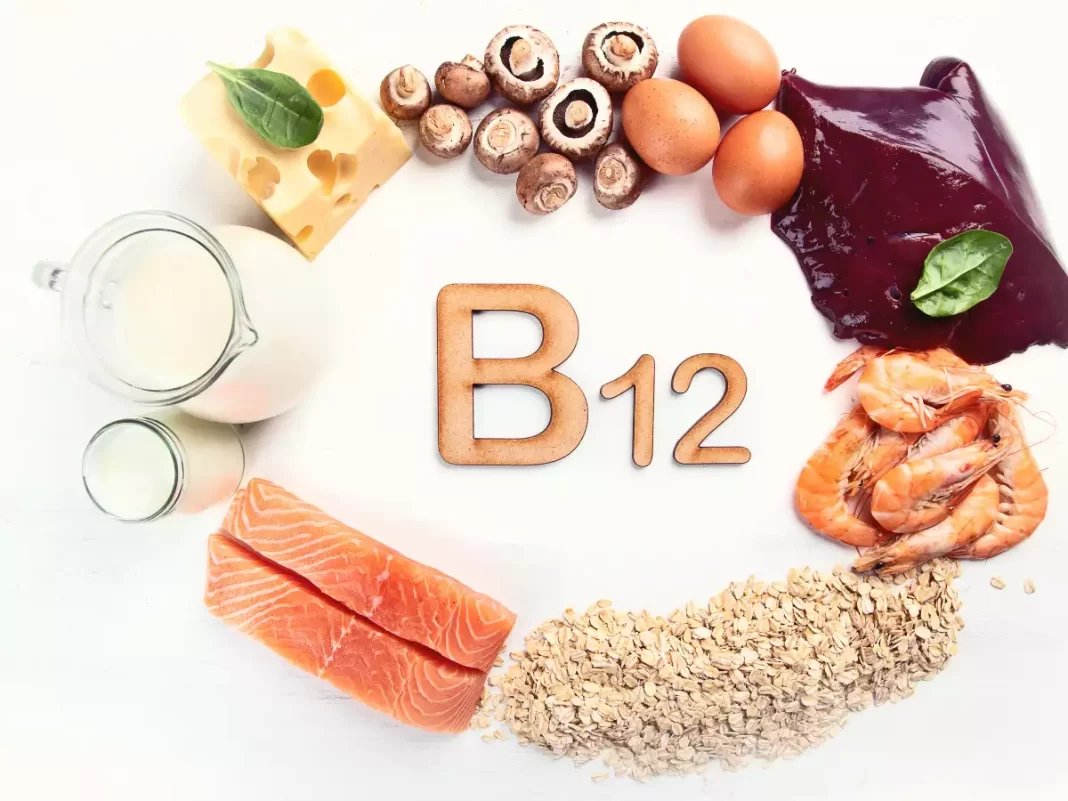Vitamin B-12, commonly known as cobalamin, is a water-soluble component that functions in tandem with Vitamins B9 and B6. It is one among the eight B vitamins that are required for DNA synthesis and amino acid metabolism. Animal items, such as meat, dairy, and eggs, are the primary sources of vitamin B12. It is not available in plant form, and due to its complex structure, it can only be manufactured industrially.
Surprisingly, the human body may retain this vitamin for up to four years before excreting any surplus through urine. The intrinsic factor, a glycoprotein released by the parietal cells of the stomach mucosa, aids in the absorption of vitamin B12.
Also, Read- Know Your Secret Weapon for Immune Health Which Elevate Your Immunity is Vitamin K.
In the long run, vitamin B12 deficiency can cause major health consequences. Doctors prescribe 2.4 mcg of Vitamin B12 every day to support the body’s proper functioning. According to surveys, over 47% of the Indian population is vitamin B12 deficient.
Let’s look at the importance of vitamin B12 and how vegans and vegetarians can obtain enough of it every day.

Why Does Our Body Require Vitamin B12?
Vitamin B12 is one of the most important and necessary molecules for our bodies’ optimal maintenance and functioning. It performs critical tasks such as:
- Prevents the loss of neurons, which lowers the chance of dementia or brain atrophy.
- Improves the flow of oxygen inside the brain, resulting in improved cognitive performance.
- Increases serotonin production, lowering the risk of depression.
- Vitamin B12 lowers the chance of developing megaloblastic anaemia, a condition that causes significant discomfort and weakness.
- Vitamin B12 lowers homocysteine levels, which has been related to a lower chance of developing cardiovascular disease and mental illnesses such as Alzheimer’s, Parkinson’s, and dementia.
- Vitamin B12 consumption has been related to enhanced bone density and the prevention of osteoporosis.
- Aids in the creation of red blood cells and DNA synthesis.
- Increased consumption of Vitamin B12 has been associated to a decreased risk of macular degeneration, a disorder that affects the central vision of the eye.
Vitamin B-12 Sources
As previously stated, Vitamin B12 is acquired mostly from animal products such as meat and eggs, which means that there are very few plant-based sources of Vitamin B12. This is a rising problem among vegetarian and vegan diets, since they are more prone to suffer vitamin deficiencies.
For Vegetarians
The following are some vegan vitamin B12 sources:
- A single serving of fortified plant milk, such as almond or soy milk, contains up to 3 mcg of Vitamin B12. It is also high in potassium and zinc. The use of fortified plant milk is critical for increasing nutrient intake and bone formation.
- Nutritional yeast is a good source of vitamin B12, potassium, zinc, pyridoxine, and riboflavin. A tablespoon of nutritious yeast provides approximately 2.4 milligrammes of vitamin B12. The eating of nutritional yeast aids in tissue regeneration and nutrient absorption.
- Mushrooms: One serving of mushrooms provides approximately 2.4 mcg of Vitamin B12. It is also high in vitamin D, zinc, and selenium. Mushrooms are extremely useful for decreasing blood pressure and have been associated to a lower chance of getting pancreatic cancer and Alzheimer’s disease.
- Algae/Seaweed: A single dish of algae or seaweed contains 2.4 milligrammes of vitamin B12. It is also high in Iodine and Tyrosine. Algae intake has been related to enhanced thyroid function, improved gut health, and a lower chance of developing Type 2 Diabetes.
- Tempeh includes 1.2 mcg of Vitamin B12 in one serve. It is also high in iron, manganese, and potassium. Tempeh eating has been associated to lower levels of oxidative stress, lower cholesterol levels, and healthier bone growth in studies.
- Tofu Fortified: One serving of fortified tofu contains 3.3 mcg of Vitamin B12. It also contains a lot of iron, phosphorus, and calcium. Tofu eating has been found in studies to lessen the chance of getting cancer and to alleviate menopausal symptoms.
- Fruit juice fortified: A single serving of fortified fruit juice contains 2.5 mcg of Vitamin B12. It is also high in vitamin C, vitamin D, and potassium. Consumption of fortified fruit juice helps to avoid osteomalacia and boosts the immune system.
Suitable for Vegetarians

Some vegetarian sources of vitamin B12 are listed below:
- Fortified Cereals: Fortified cereals such as bran and whole wheat are high in vitamins A, D, B12, manganese, and folates. A single bowl of cereal contains around 2.5 mcg of Vitamin B12. Consumption of enriched cereal has also been linked to the treatment of constipation and the prevention of congenital impairments.
- A 16-ounce cup of low-fat milk provides around 2.6 mcg of Vitamin B12. It also contains a lot of potassium, calcium, manganese, and vitamin D. Low-fat milk consumption has been related to good bone formation and lower bad cholesterol levels.
- Swiss cheese contains around 3.1 mcg of Vitamin B12 per 100 gramme meal. It also contains a lot of protein, good fats, and potassium. Swiss cheese intake has been related to decreased blood pressure, improved bone health, and higher metabolism.
- Low Fat Yogurt: One serving of low-fat yoghurt provides approximately 1.5 mcg of Vitamin B-12. It’s also high in probiotics, potassium, calcium, and liver culture. Low-fat yoghurt helps digestion, strengthens the immune system, and supports bone formation.
- Whey Protein: Whey protein contains 2.4 mcg of Vitamin B-12 per 100 grammes and is high in Vitamin D, A, protein, and calcium. Whey protein ingestion promotes muscle mass growth, prevents Type 2 diabetes, and decreases blood pressure.
- Supplements for Health: Health supplements such as HK Vitals B Complex are a feasible source of Vitamin B-12 for both vegans and vegetarians since they are manufactured industrially by synthesising bacteria rather than being sourced from animals.
- A single tablet of Vitamin B12 provides approximately 15 mcg. It is also high in biotin, folic acid, vitamins B1, B2, B3, and other minerals. Consumption of health supplements promotes general body growth and strengthens the immune system.
Vitamin B-12 Deficiency
To ensure normal physiological functioning, doctors recommend a daily consumption of 2.4 mcg of Vitamin B-12. Vitamin B-12 deficiency can result in serious consequences such as the development of B12 anaemia or pernicious anaemia, a disorder distinguished by a lack of red blood cell production. Red blood cells are essential to transfer oxygen from the lungs to the rest of the body, and their absence can result in symptoms such as:
-Muscle fatigue
-Pain or pain all across the body
-Breathing difficulty
-Nausea or exhaustion
-Tingling or numbness in the limbs
-Increased heart rate
-Appetite loss
-Skin discoloration
-Weight loss or gain that is unusual








